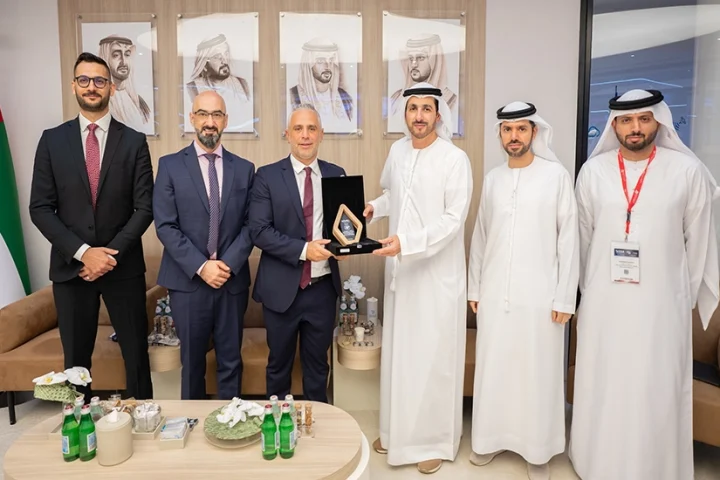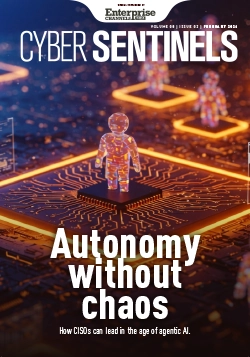VMware, released UAE findings from the fourth installment of the Global Security Insights Report, based on an online survey of 3,542 CIOs, CTOs and CISOs in December 2020 from across the globe, including 250 in the UAE. The report explores the impact of cyberattacks and breaches on organizations and details how security teams are adapting to these challenges.
Accelerated digital transformation has caused security teams to face evolving threats as cybercriminals seize the opportunity to execute targeted attacks exploiting fast-tracked innovation and the anywhere workforce. Close to 80 percent of organizations surveyed in the UAE experienced cyberattacks due to more employees working from home, highlighting the vulnerabilities in legacy security technology and postures.
The Global Security Insights Report provides intelligence on the cybersecurity landscape, attack and defense trends, along with the security priorities for organizations this year to maintain resilience. The key findings include:
- A lack of urgency despite surge in material breaches. 80% of respondents have suffered a breach in the last twelve months with 85% considered material, meaning they were reported to regulators. Yet, security professionals have underestimated the likelihood of a material breach. 70% say they fear a material breach in the next year, and just 31% have updated their security policy and approach to mitigate the risk.
- Resurgence of ransomware and remote work creates unpredictable attack surface. 81% of respondents said attack volumes had increased – with majority pointing to employees working from home as the cause – and 84% said attacks had become more sophisticated. Cloud-based attacks were the most frequently experienced attack type in the past year, whereas the leading breach causes process weaknesses (14%), followed by out of date (12%) security.
- Cloud-first security strategies are now universal. 99% of respondents already use or plan to use a cloud-first security strategy. But the move to cloud has expanded the threat surface. More than four fifths (82%) agree they need to view security differently now that the attack surface has expanded. 37% of respondents said they plan to build more security into their infrastructure and apps and reduce the number of point solutions.
- Applications and workloads are top CISO concerns. Applications and workloads are viewed as the most vulnerable points on the data journey. 78% of respondents agree they need better visibility over data and apps in order to pre-empt attacks. 74% of respondents also shared that their senior leadership team feel increasingly worried about bringing new applications to market because of the growing threat and damage of cyberattacks.
- Security concerns are holding back adoption of AI. The next frontier for business innovation may be artificial intelligence, but more than half of respondents (76%) say that security concerns are holding them back from embracing AI and machine learning.

The pandemic and shift to anywhere work have undoubtedly changed the threat landscape requiring security teams to transform their cybersecurity strategies and stay one step ahead of attackers. Key focus areas for the coming year must include improving visibility into all endpoints and workloads, responding to the resurgence of ransomware, delivering security as a distributed service, and adopting an intrinsic approach to cloud-first security.
Erratic employee behaviour, personal device and home network use reduce visibility, creating blind spots and dark corners where attacks go undetected
“The race to adopt cloud technology since the start of the pandemic has created a once-in-a-generation chance for business leaders to rethink their approach to cybersecurity,” said Rick McElroy, Principal Cybersecurity Strategist, VMware. “Legacy security systems are no longer sufficient. Organizations need protection that extends beyond endpoints to workloads to better secure data and applications. As attacker sophistication and security threats become more prevalent, we must empower defenders to detect and stop attacks, as well as implement security stacks built for a cloud-first world.”
“The rapid switch from a centralized workplace, infrastructure and applications to distributed workforce, cloud-based and modern applications has resulted in organizations losing visibility of their networks,” said Ahmed El Saadi, Regional Director of Sales, Middle East, Turkey & Africa, VMware. “Complexity is the enemy of security. This means organizations can’t see into the corners where personal mobile devices and home networks have been grafted to corporate distributed IT infrastructure through insecure technologies such as VPNs. It is vital, therefore, that organizations gain visibility of their networks through cloud-based technologies such as SASE (Secure Access Services Edge). Having infrastructure than can provide a security operations center, with robust situational intelligence, will give context to threats and help prioritize potential targets and remediate risk with confidence.”
“It’s vital that organizations in the UAE fully understand their security weaknesses, if they are to improve their security posture,” said Amin Hanafieh, country director, UAE, VMware. “Many organizations surveyed are already using, or planning to use, a cloud-first security strategy, and while they may encounter significant challenges related to cybersecurity, there is room for optimism. By adopting an intrinsic approach to cloud-first, whereby security is built-in, and not bolted-on, organizations will need to address challenges including ineffective legacy security technology, and improving process weaknesses. This will ensure companies in the UAE are better positioned for success in a fast-changing world, while also supporting the UAE’s ambitions to be the digital leader.”

























